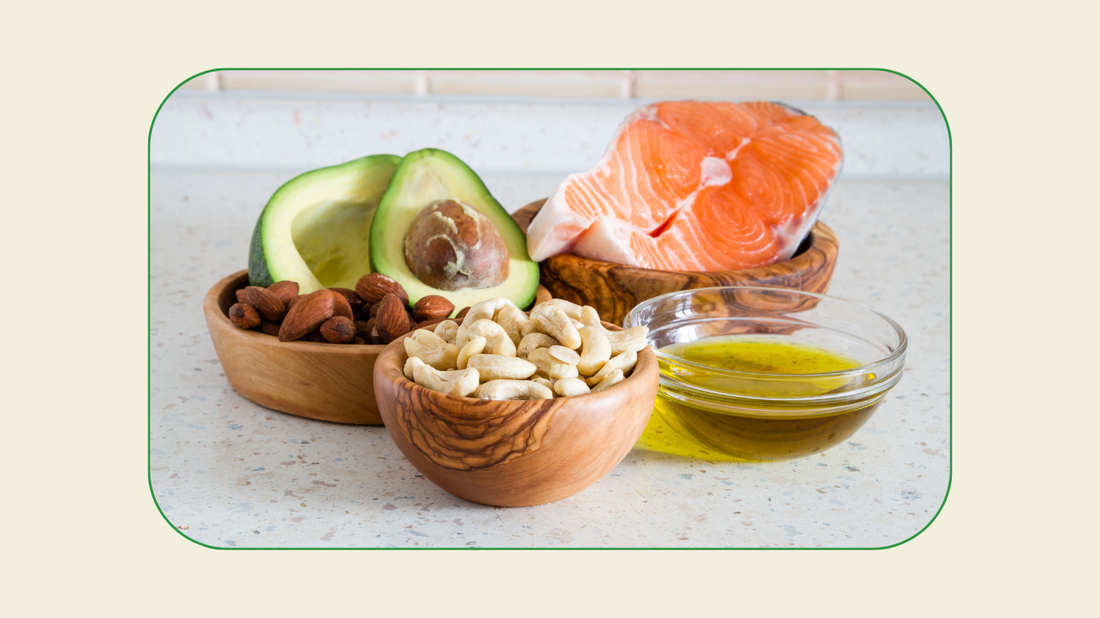
Gut-Friendly Food List: What to Eat and What to Avoid
jerome adamoShare
A Foundational Guide to Eating for a Healthier Gut
When it comes to healing your gut, food is either your greatest ally—or a quiet saboteur. Whether you're managing IBS, IBD, leaky gut, or just want to feel better in your belly, choosing the right foods can make all the difference. This guide highlights the most gut-friendly foods to nourish and support digestion—plus what to avoid if you're serious about healing.
This post is part of our Gut Healing Series — a 12-part journey into the hidden roots of digestive imbalance and the natural path back to balance. From microbiome repair to herbal remedies, mindful fasting, and daily rhythms that support your gut-brain connection, each article offers practical steps rooted in science and tradition.
Why Gut-Friendly Eating Matters
The gut isn’t just where we digest food—it’s where we absorb nutrients, balance inflammation, and communicate with the brain and immune system. When the gut lining becomes damaged or inflamed, certain foods can worsen symptoms and stall healing.
Signs that your gut may need some extra care include:
- Bloating or irregular digestion
- Skin flare-ups
- Food sensitivities
- Brain fog
- Fatigue
Food is one of the most powerful ways to support the gut. Let’s take a closer look at what to eat—and what to avoid.
Gut-Friendly Foods to Embrace
Eating with your gut in mind means choosing whole, gentle, anti-inflammatory foods that support healing and nourish your microbiome.
Vegetables (Always Cooked)
- Zucchini
- Carrots
- Spinach
- Green beans
- Peeled sweet potato
- Yellow squash
Why: These vegetables are soft, low in insoluble fiber, and rich in gut-healing nutrients. Cooking them reduces roughage, making them easier to digest.
Fruits (Low-FODMAP and Ripe)
- Ripe bananas
- Blueberries
- Papaya
- Kiwi
- Peeled and stewed apples
Why: These fruits are rich in antioxidants and gentle on the gut lining. Choose ripe options and avoid mixing with heavy meals for best digestion.
Herbs and Spices
- Ginger
- Turmeric
- Fennel
- Chamomile
- Peppermint
Why: Nature’s digestive aids—these soothe inflammation, relieve bloating, and support gut motility.
Clean Proteins
- Bone broth
- Wild-caught fish
- Pasture-raised chicken
- Soft-cooked eggs
- (Optional: Mung dal or silken tofu, if well tolerated)
Why: Clean, high-quality proteins are essential for repair and rebuilding tissue. Bone broth is especially rich in collagen and amino acids that help heal the gut lining.
Healthy Fats
- Olive oil
- Ghee
- Avocado oil
- Coconut oil
Why: These fats reduce inflammation and support the production of protective mucus in the gut.
Starches
- White rice
- Peeled potatoes
- Butternut squash
- Soaked or sprouted oats
Why: Easily digestible sources of energy that help calm the digestive tract when used in moderation.
Foods to Avoid for Gut Health
Some foods are known to irritate the gut, increase inflammation, or disrupt the delicate balance of gut bacteria.
Inflammatory Oils
- Canola
- Soybean
- Corn
- Safflower
Why: These refined oils promote inflammation and can damage the gut barrier.
Refined Sugar and Artificial Sweeteners
- High-fructose corn syrup
- White sugar
- Aspartame, sucralose, and other synthetics
Why: These feed harmful gut bacteria and often trigger digestive symptoms.
Highly Processed Foods
- Packaged snacks
- Fast food
- Processed meats
Why: These often contain additives, emulsifiers, and preservatives that disrupt the gut microbiome.
Gluten and Dairy (If Sensitive)
- Bread, pasta
- Milk, cheese, cream
Why: These are common triggers for IBS, IBD, and leaky gut. Eliminating them can significantly reduce flares and bloating.
Alcohol and Excess Caffeine
- Beer, wine, spirits
- Coffee, energy drinks
Why: These can damage the gut lining, overstimulate the system, and throw off natural digestive rhythms.
Bonus Tips for Gut-Healing Meals
- Keep meals simple: Choose one protein, one or two cooked vegetables, and a healthy fat. Add a starch only if needed.
- Eat slowly and mindfully: Digestion starts in the mouth. Chewing thoroughly makes a difference.
- Avoid overeating: Smaller portions reduce digestive strain.
- Sip herbal teas between meals: Chamomile, peppermint, and fennel are great choices.
Final Thoughts
This gut-friendly food list is a powerful starting point. Small changes in what you eat can lead to big shifts in how you feel. And while diet is foundational, full healing often requires a combination of the right herbs, stress reduction, sleep support, and consistent daily habits.
Our Laguna Gut Protocol is a step by step program of supportive, plant, food and lifestyle based protocols to restore your cut lining, reduce or eliminate flare-ups and rebalance your system - naturally.
Want to go deeper?
Check out our related guides:
- The Stress-Gut Connection
- What Is Leaky Gut Syndrome?
- [Herbal Remedies for Gut Healing] (coming soon)
For more articles on healing your Gut, visit our Healing Protocols page.
For a full selecton of Herbs for Gut Health.
With care,
Cole
LagunaBeachApothecary.com
